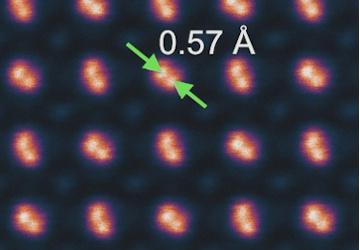Project Details

Rich functionalities of strongly correlated quantum materials emerge from the interplay between the electronic, orbital, lattice, and spin degrees of freedom that often lead to complex structural and electronic phenomena spanning atomic to mesoscopic scales. In many cases, these phenomena are associated with translational and point symmetry breaking, local frozen disorder, or strongly correlated structural or electronic disorder. However, the emergence of non-local behaviors and roles of individual subsystems often remain unknown. The overarching goal of this proposal is to reveal the generative and causal mechanisms underpinning static and dynamic structures, local functionalities, and collective phenomena in quantum materials via advances in the science and techniques of aberration-corrected STEM. This overarching goal will be achieved through three specific aims: (1) developing the correlative, generative, and causal models of solid with broken translation symmetry from quantitative structural and 4D STEM imaging, (2) exploring the emergence of collective electronic and magnetoelectronic responses from
interplay of atomic and geometric factors on the local and non-local levels, and (3) decoupling the chemical and physical functionalities via exploration of dynamic processes. These three goals are synergistically combined to maximize the immediate physics impact from extant STEM instrumentation and to guide the
development of imaging tools towards acute physics problems. To complement STEM instrumentation development, we aim to harness the power of machine learning methods to discover the generative physical models that give rise to the observed structures and to explore the causative mechanisms operating in
materials with multiple functionalities.





